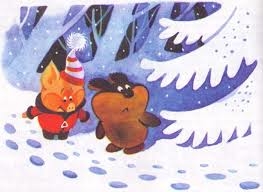Выступление. Речь защиты проекта.
Защита проекта
Скачать:
| Вложение | Размер |
|---|---|
| 11.25 КБ |
Предварительный просмотр:
Hello everyone! I'm excited to share with you today my research project on a fascinating aspect of the English language: idioms, also known as phraseological units.
Idioms are a vital part of English. They're not just extra words – they add color, expressiveness, and a certain flair to the way we speak and write. But what exactly are they? Well, idioms are fixed expressions, like little phrases, where the overall meaning is different from the literal meaning of the individual words. You can't just translate them word-for-word.
In my project, I wanted to explore different kinds of English idioms, where they come from, and how they're used in everyday English. I feel like understanding idioms can really make learning the language easier and it helps you understand English speakers and their culture a lot better.
Why is this important? There are a few key reasons. First, idioms are everywhere in spoken English. Knowing what they mean helps you understand what people are really saying. This is especially helpful for those of you learning English as a second language. Second, idioms are used a lot in books, movies, music, and all sorts of cultural things. If you can understand idioms, it helps unlock a much deeper level of meaning. Finally, understanding idioms gives you a window into the culture of English-speaking people - their way of life, thought, and history.
For my project, I set out to discover the use of English idioms in everyday use. That is to say, the overall goal of the project was to improve English language skills and expand understanding of the cultures and societies of English-speaking countries. My hypothesis for this project was that an improved knowledge of English idioms can improve comprehension of everyday English language and improve the overall fluency and natural-ness of conversation.
So, what did I actually do for this project? I researched a lot of different resources. I searched for English idioms in different sources – dictionaries and online resources. Then, I categorized the idioms based on different things, like what they meant, where they came from, and how they're put together. I also compared English idioms to their Russian equivalents to find some similar phrases. Finally, I studied how idioms are actually used in different situations.
What I found out is that idioms can be broken into different kinds, such as idioms, verbal phrases, nominations, proverbs, aphorisms, metaphorical phrases and allusions.
Idioms are the most common type of expression. An example of this is ‘kick the bucket’, which is a term that means ‘to die’.
Verbal Phrases usually consist of one or more verbs and can easily be identified. An example of this is 'give up' or 'look forward to'.
Nominations phrases are a set of words relating to a physical entity or noun. An example of this is ‘the black sheep of the family’.
And finally, Proverbs, such as 'a stitch in time saves nine' are often short and concise phrases that have a philosophical or moral meaning.
One interesting thing I learned is that idioms often come from things people used to do, from stories, or even from old jobs. For example, the term "kicking the bucket" originally comes from farmers hanging themselves off of a bucket.
I also learned that idioms sometimes change over time. What an idiom meant a hundred years ago might be slightly different today. This makes studying them even more interesting! Context also affects how an idiom may be perceived, so knowledge is crucial.
Despite its many benefits, phraseology can be hard to study for a number of reasons.
• Dynamic meanings: The significance of phrases can change with the times. What it used to mean one thing, may be perceived differently nowadays.
• Contextual-ness: The meaning of an expression is greatly impacted by its context.
• Cultural variety: Certain phrases lack cultural equivalents in other languages, making them difficult to translate a

Филимоновская игрушка

ГЛАВА ТРЕТЬЯ, в которой Пух и Пятачок отправились на охоту и чуть-чуть не поймали Буку

Госпожа Метелица

Д.С.Лихачёв. Письма о добром и прекрасном: МОЛОДОСТЬ – ВСЯ ЖИЗНЬ

Разлука
